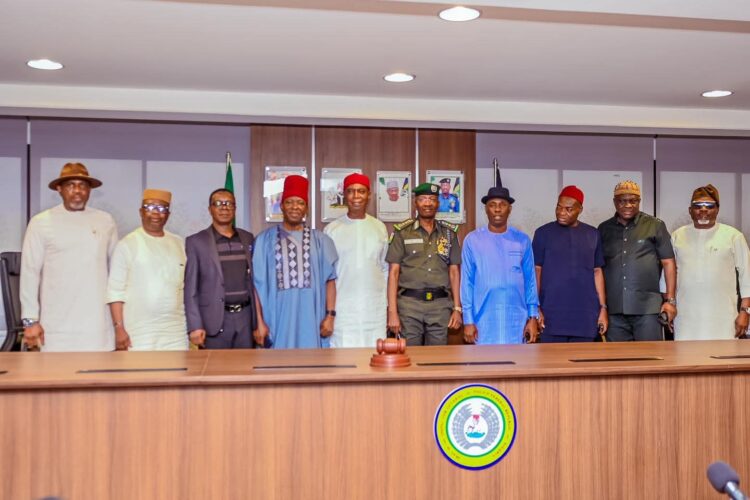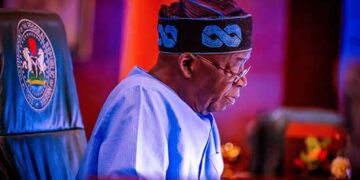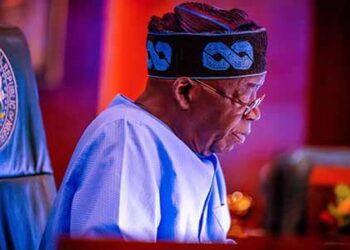By Austin Oyibode
Senator Ned Nwoko, Chairman of the Senate Ad-Hoc Committee on Crude Oil Theft, has stepped up efforts to tackle one of Nigeria’s most critical economic challenges—crude oil theft—through a series of high-level engagements with top petroleum regulatory agencies and international partners.
On August 1, 2025, Senator Nwoko met with Engr. Babajide Fashina, Deputy Director and Head of Planning at the Nigeria Upstream Petroleum Regulatory Commission (NUPRC), and Mrs. Ngozi Nwankwo, Director at the Nigerian Midstream and Downstream Petroleum Regulatory Authority (NMDPRA).
Accompanied by his Spanish counterpart, Mr. Bernardino Ferrer, Nwoko focused discussions on attracting foreign direct investment and strengthening regulatory collaboration to secure Nigeria’s energy sector.
“These engagements are part of our commitment to building a more secure, transparent, and investment-friendly petroleum industry,” Nwoko said.
He emphasized the need for collective action, stating that effective partnerships between regulators, lawmakers, and international allies are essential to curbing oil theft and restoring investor confidence.
Crude oil theft remains a major threat to Nigeria’s economy, with losses estimated at up to 200,000 barrels per day—figures that exceed the total production of some smaller oil-producing nations.
Although, reports say the Nigerian Upstream Petroleum Regulatory Commission recently had a reduction in theft to 5,000 barrels per day in early 2025—a 58.3% decrease compared to previous periods—Nwoko maintains that broader losses, including unreported and indirect theft, still threaten national revenue and energy security.
Efforts to combat the crisis have intensified. According to reports, the Nigerian Navy has arrested 76 vessels involved in oil theft since June 2023, recovering approximately 171,000 barrels of crude oil and millions of liters of illegally refined products.
In May 2025 alone, the military destroyed 19 illegal refining sites and arrested 20 suspected thieves, recovering nearly 600,000 liters of stolen petroleum.
Additionally, the federal government has introduced 37 new evacuation routes to complicate theft operations and improve pipeline security.
Earlier this week, the Senate Committee on Oil Theft met with the Inspector General of Police, Kayode Egbetokun, to design a unified security and enforcement framework.
These coordinated actions reflect a whole-of-government approach to dismantling criminal networks and protecting national assets.
Senator Nwoko is also pushing for long-term reforms.
He has proposed strengthening legal penalties for oil theft, enhancing the traceability of crude oil flows, increasing local community involvement in safeguarding infrastructure, and engaging forensic finance experts to track stolen oil across borders.
His meeting with NMDPRA underscored the importance of improving regulatory efficiency across the petroleum value chain.
By addressing systemic weaknesses and enhancing monitoring capabilities, the senator believes Nigeria can create an environment that attracts international investors who have long been deterred by insecurity and corruption in the sector.
The presence of Mr. Ferrer, Nwoko’s Spanish counterpart, signals interest in international collaboration, though specific details of potential partnerships have yet to be disclosed. Still, the message is clear: Nigeria is seeking trusted allies to help secure its oil wealth and rebuild credibility in the global energy market.
Despite signs of progress, challenges remain. The Nigerian Economic Summit Group recently warned that aging infrastructure, pipeline vandalism, and weak enforcement continue to cripple the oil sector. However, with growing momentum from government, military, and legislative efforts, Senator Nwoko believes Nigeria stands at a turning point.
“Progress is real, but fragile,” he noted. “We must act decisively and consistently to protect our resources and unlock the full potential of our energy sector. What we do in the coming months will shape Nigeria’s economic future.”













